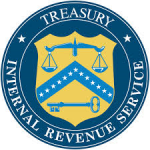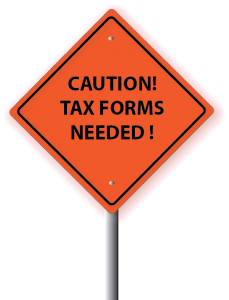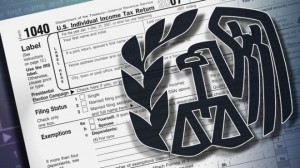 WHO WANTS A FREE TAX TIP?
WHO WANTS A FREE TAX TIP?
If you haven’t filed yet, the IRS has these 10 tax-time tips to help you. The April 18 deadline to file your federal tax return is less than two weeks away. Don’t wait until the last minute.
1.Gather your records. Make sure you have all your tax records. This includes receipts, canceled checks and other records that support income, deductions or tax credits that you claim. If you purchased health insurance through the Marketplace, you will need the information in Form 1095-A to file.
2.Report all your income. You will need to report your income from all of your Forms W-2, Wage and Tax Statements, Forms 1099 and any other income – even if you don’t receive a statement – when you file your tax return.
3.Try IRS Free File. Free File is available only on IRS.gov. If you made $62,000 or less, you can use free name-brand tax software to file your federal tax return. If you earned more, you can use Free File Fillable Forms, an electronic version of IRS paper forms. If you need more time to file, you can also use IRS Free File to get an automatic six-month extension to file your taxes. Remember, an extension to file your tax return is not an extension to pay taxes you owe, which are due April 18.
4.Try IRS e-file. Electronic filing is the best way to file a tax return. It’s accurate, safe and easy. If you owe taxes, you have the option to e-file early and pay by April 18 to avoid penalties and interest.
5.Use Direct Deposit. The fastest and safest way to get your refund is to combine e-file with direct deposit. The IRS issues more than nine out of 10 refunds in less than 21 days.
6.Visit IRS.gov. IRS.gov is a great place to get what you need to file your tax return. Click on the “Filing” icon for links to filing tips, answers to frequently asked questions and IRS forms and publications. Get them all at any time. The IRS Services Guide outlines the many ways to get help on IRS.gov.
7.Use IRS online tools. The IRS has many online tools on IRS.gov to help you file. For instance, the Interactive Tax Assistant tool provides answers to many of your tax questions. The tool gives the same answers that an IRS representative would give over the phone. If you want to find a tax preparer with the qualifications and credentials that you prefer, use the IRS Directory of Federal Tax Return Preparers. IRS tools are free and easy to use. They are also available 24/7.
8.Weigh your filing options. You have different options for filing your tax return. You can prepare it yourself or go to a tax preparer. You may be eligible for free help at a Volunteer Income Tax Assistance or Tax Counseling for the Elderly site.
9.Check out number 17. IRS Publication 17, Your Federal Income Tax, is a complete tax resource that you can read on IRS.gov. It’s also available as an eBook. It can help you with many tax questions, such as whether you need to file a tax return, or how to choose your filing status.
10.Review your return. Mistakes slow down your tax refund. If you file a paper return, be sure to check all Social Security numbers. That’s one of the most common errors. Remember that IRS e-file is the most accurate way to file.
Each and every taxpayer has a set of fundamental rights they should be aware of when dealing with the IRS. These are your Taxpayer Bill of Rights. Explore your rights and our obligations to protect them on IRS.gov.

 You are required to issue a 1099 to anyone you pay $600 or more in the course of your trade or business who is not incorporated.
You are required to issue a 1099 to anyone you pay $600 or more in the course of your trade or business who is not incorporated. Mileage Deduction Rates
Mileage Deduction Rates Continuing Education for the entrepreneur, start-up and small business owner.
Continuing Education for the entrepreneur, start-up and small business owner.  In 2015, Various Tax Benefits Increase Due to Inflation Adjustments
In 2015, Various Tax Benefits Increase Due to Inflation Adjustments
 Affordable Care Act has provisions for individuals who need to purchase Health Care.
Affordable Care Act has provisions for individuals who need to purchase Health Care. Seven significant new income tax law changes went into effect at the beginning of the year as a result of two pieces of legislation:
Seven significant new income tax law changes went into effect at the beginning of the year as a result of two pieces of legislation: File information returns (for example, Forms 1099 for certain payments you made during 2013. There are different forms for different types of payments. Use a separate Form 1096, Annual Summary and Transmittal of U.S. Information Returns, to summarize and transmit the forms for each type of payment. See the
File information returns (for example, Forms 1099 for certain payments you made during 2013. There are different forms for different types of payments. Use a separate Form 1096, Annual Summary and Transmittal of U.S. Information Returns, to summarize and transmit the forms for each type of payment. See the  Whatever the name, taxes can be painful and the new tax is known by a few: the Affordable Care Act tax, the Obamacare tax, the Net Investment Income Tax (NIIT), or Medicare Tax. Most media (and even the President) is using the name “Obamacare Tax”, so we will use that name for this writing. For a full Q&A on the new tax, please see our
Whatever the name, taxes can be painful and the new tax is known by a few: the Affordable Care Act tax, the Obamacare tax, the Net Investment Income Tax (NIIT), or Medicare Tax. Most media (and even the President) is using the name “Obamacare Tax”, so we will use that name for this writing. For a full Q&A on the new tax, please see our  The budget deal that Congress and President Obama struck at the beginning of the year to avoid the fiscal cliff resulted in seven tax increases. If you throw in the six tax hikes that are part of Obamacare, that means there are 13 new taxes that may have hit you in 2013.
The budget deal that Congress and President Obama struck at the beginning of the year to avoid the fiscal cliff resulted in seven tax increases. If you throw in the six tax hikes that are part of Obamacare, that means there are 13 new taxes that may have hit you in 2013.